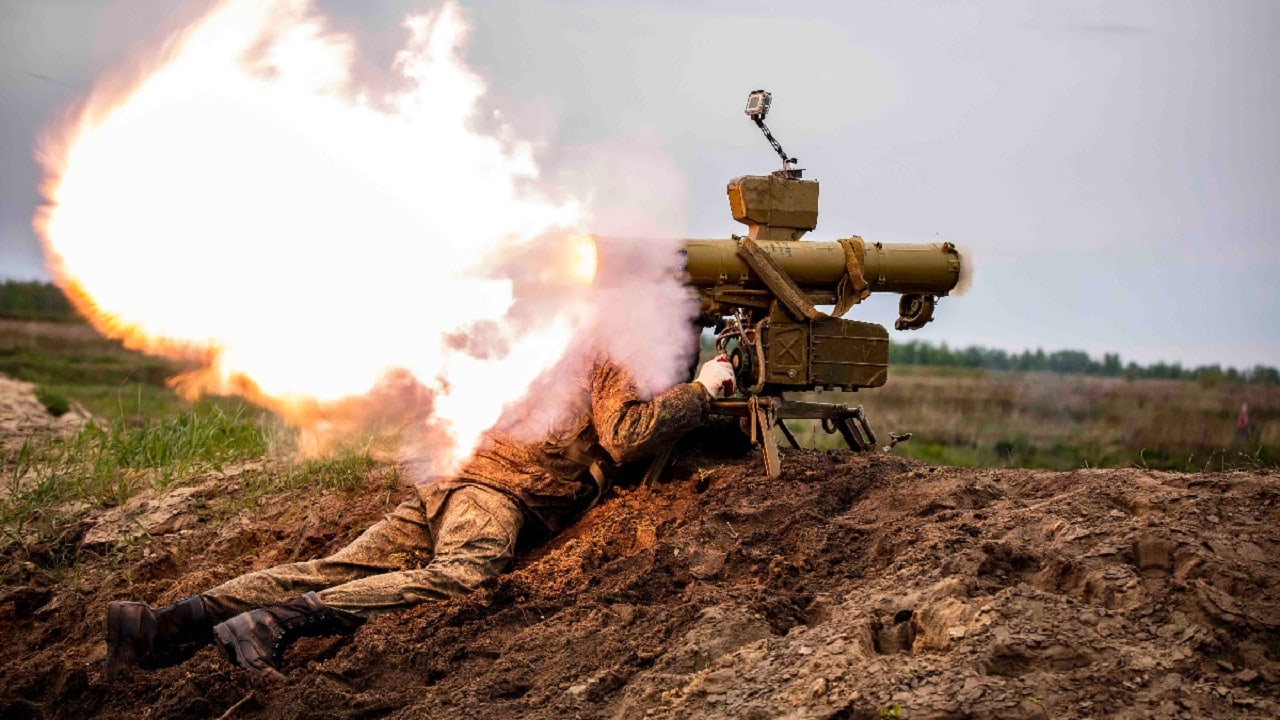Has Russia Begun Chemical Attacks In Ukraine? – On Friday, the White House said that the most recent aid package for Ukraine – which included $100 million worth of ammunition and Javelin missile systems – was donated with a view to helping Ukrainian fighters fight back in the event that Russia deploys chemical or biological weapons.
During a White House press briefing, press secretary Jen Psaki said that supplies were being shipped to Ukraine immediately in light of warnings from several governments and intelligence agencies that Russia may be planning a “false flag” attack to establish a pretext for the use of chemical weapons.
Psaki was asked about reports that Washington would also be supplying Ukraine with gas masks and protective equipment, to which she responded with a general promise that the package would include “lifesaving equipment and supplies that could be deployed in the event of Russian use of a chemical or biological weapon.”
Only days later, on Tuesday, the Luhansk Regional Military Administration Chief Serhii Haidai revealed in a Telegram post that Russian troops fired missiles at a nitric acid tank in Rubizhne, creating a potentially deadly environment for local people.
The attack prompted local officials to warn residents to stay in bomb shelters if possible and to shut windows and doors to their homes to prevent breathing in the acid. Upon ingestion, nitric acid can cause drowsiness, dizziness, bronchiolitis, and even blindness.
“Prepare protective face masks soaked in soda solution. When applied locally to the eyes, nitric acid causes severe damage with extensive necrosis of the cornea and conjunctiva, leading to loss of vision,” Haidai said.
1945 has not been able to independently confirm the claims.
Why It Matters
Luhansk, a contested part of eastern Ukraine that Russian President Vladimir Putin declared “independent” in a presidential decree before he launched an invasion in Ukraine, is one of the primary targets for Russian troops as they withdraw from the west of the country. Luhansk is one of two regions in the country with separatist, pro-Kremlin forces and governments.
An attack in the region may help Russian troops take control of the area, but could potentially backfire if it hurts civilians who Russian President Vladimir Putin claims he is attempting to liberate.
One government official told Fox News that if the tank holding nitric acid was destroyed on purpose, with the intention of releasing nitrogen dioxide gas into the air, then it “might be called a Chemical Weapons event.”
Not only would an escalation of this kind likely result in further chemical weapons attacks in the country, but could potentially trigger direct NATO involvement and a third world war.
President Joe Biden pledged in late March during a summit with European and NATO leaders in Brussels that NATO would respond “in kind” to Russian use of chemical weapons – indicating that the United States or an allied country may deploy chemical weapons against Russian troops in response.
The president later backtracked on the claim, however, and told Fox News’ Peter Doocy that he would not reveal how his government would respond to the use of chemical weapons.
Nonetheless, if the attack in Rubizhne was a coordinated chemical attack, it indicates a significant escalation in this conflict.
Jack Buckby is a British author, counter-extremism researcher, and journalist based in New York. Reporting on the U.K., Europe, and the U.S., he works to analyze and understand left-wing and right-wing radicalization, and reports on Western governments’ approaches to the pressing issues of today. His books and research papers explore these themes and propose pragmatic solutions to our increasingly polarized society.

